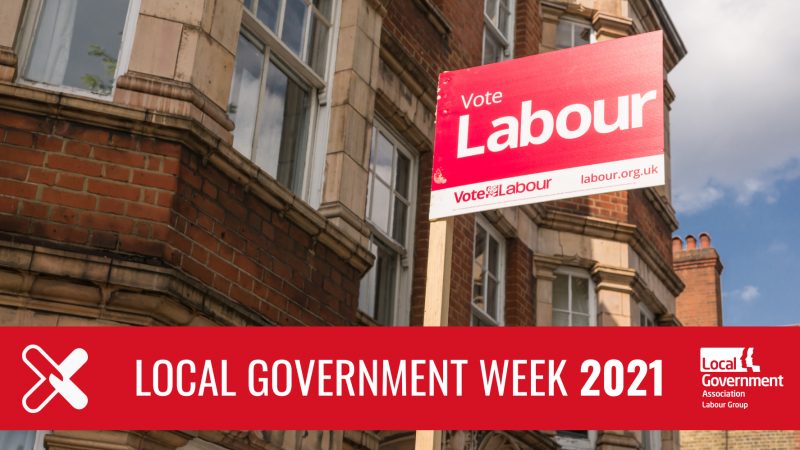
As Labour under Keir Starmer begins to rebuild and address the huge challenges our country now faces, I am firmly of the belief that we must do so from the ground up – through local government. Amongst the myriad of lessons we must learn from this government’s disastrous handling of coronavirus, the most important might be that Whitehall is simply not equipped to tackle big challenges at scale and at speed.
If the government had listened to, worked with and empowered local councils on test and trace, shielding and self-isolation schemes, we’d have made a huge difference. Labour should learn those lessons when it begins to lay out its approach to the challenges our country faces. But we should also learn from the experience – good and bad – of Labour in local government in the last decade.
Just over a year ago, our party suffered the most catastrophic defeat in almost a century. With all that has happened since, it feels life a lifetime ago, and whilst the debate over what caused it still rages, most people name two main reasons for the defeat: Brexit and Jeremy Corbyn. Often, though, we hear another theory – particularly when it comes to where Labour went wrong in the so-called ‘Red Wall’. That’s the idea that Labour was punished because Labour ran the local council – and that as a result we were somehow seen as ‘the establishment’ and were blamed for the many injustices that people had suffered under the Conservatives.
I argued against this idea in a LabourList article during last year’s local government week, and in general I still think it is a lazy analysis. As evidence, I point at the countless Labour groups all over the country that consistently outperform the party’s general election results because they have a stronger brand and reputation than the national party. Our Labour councils and councillors are successfully putting our principles into practice, despite being forced to operate with both hands tied behind their backs as a result of a ten-year tsunami of cuts.
But if we’re honest, there are too many places where that wasn’t the case in the run-up to 2019, and where Labour councillors did get blamed for the results of Conservative policies. And where the inability of our councillors to turn that narrative around – sometimes hampered by members of our own party, who inadvertently collaborated with the Tories by blaming their Labour council – did hurt Labour’s national standing.
I would argue that this stems from a failure of our own party to take local government seriously, to maintain a consistent and powerful message about the Conservative government’s responsibility for decline, or to develop and invest in the skills and people we need to form a strong local government base. If we’re to regain the trust of voters here, the Labour Party’s approach to local government must change.
We should start by learning from the best, then rolling out those lessons to all. Our most successful Labour groups recognise that they need to be more than the sum of their parts, and involve members, trade unionists and community groups in setting out their vision for the places they represent. Councillors are often genuine community organisers – building relationships between residents, connecting different parts of their neighbourhood and bringing them together to decide key priorities.
In these places, Labour councillors are deeply connected to the communities and voters they serve. They have the trust of local people at election time because they work all year round to stay in touch with their concerns and to deliver positive change. Labour needs to build on those relationships where they exist, and help councillors to forge them where they don’t. That means finding, inspiring and training new members to become councillors – something which I’m pleased to see Angela Rayner has made a priority for her work as chair of the party – while recognising that there is a need for ongoing training and development for existing councillors, too.
An area where we desperately needs to up our game is in digital campaigning. The day before people went to the polls in 2019, in what in hindsight is an act of remarkable hubris, Labour issued a national press release claiming that they had “run the most successful election social media campaign the country has ever seen”. The next day we slumped to our worst defeat in almost a century.
The sad truth is that at the 2019 general election, we weren’t outspent by the Conservatives – Labour actually spent more on Facebook ads than the Conservatives – but we were totally outmanoeuvred and out-thought by them. The way they used local Facebook groups to serve up a constant drip of poison against Labour was cynical and exploitative, but it was also devastatingly effective. And it caught Labour entirely unawares.
Under our new leadership team and general secretary, work has already started to improve our party’s digital methods and campaign tools. This is welcome – but for this to be truly effective, and if we are truly going to transform our political communications, then it needs to not just be a function of the Westminster machine and delivered only through MPs. Improvements must be rolled out to every Labour group, too. Less than a third of constituencies have a Labour MP, so we need to find alternative voices to deliver our message, and Labour in local government should be a key part of that.
Our route back to power runs through local government. Everyone agrees that Labour has a mountain to climb to win back power at Westminster. I truly think we can do it – but just like any successful climb, we’ve got to start at the bottom.




More from LabourList
Turning the page? Labour’s recovery in the polls show a path to 2029 victory
Restoration announce recommendations for NEC candidates
‘Factionalism at the top is weakening Labour – and handing a gift to Reform’